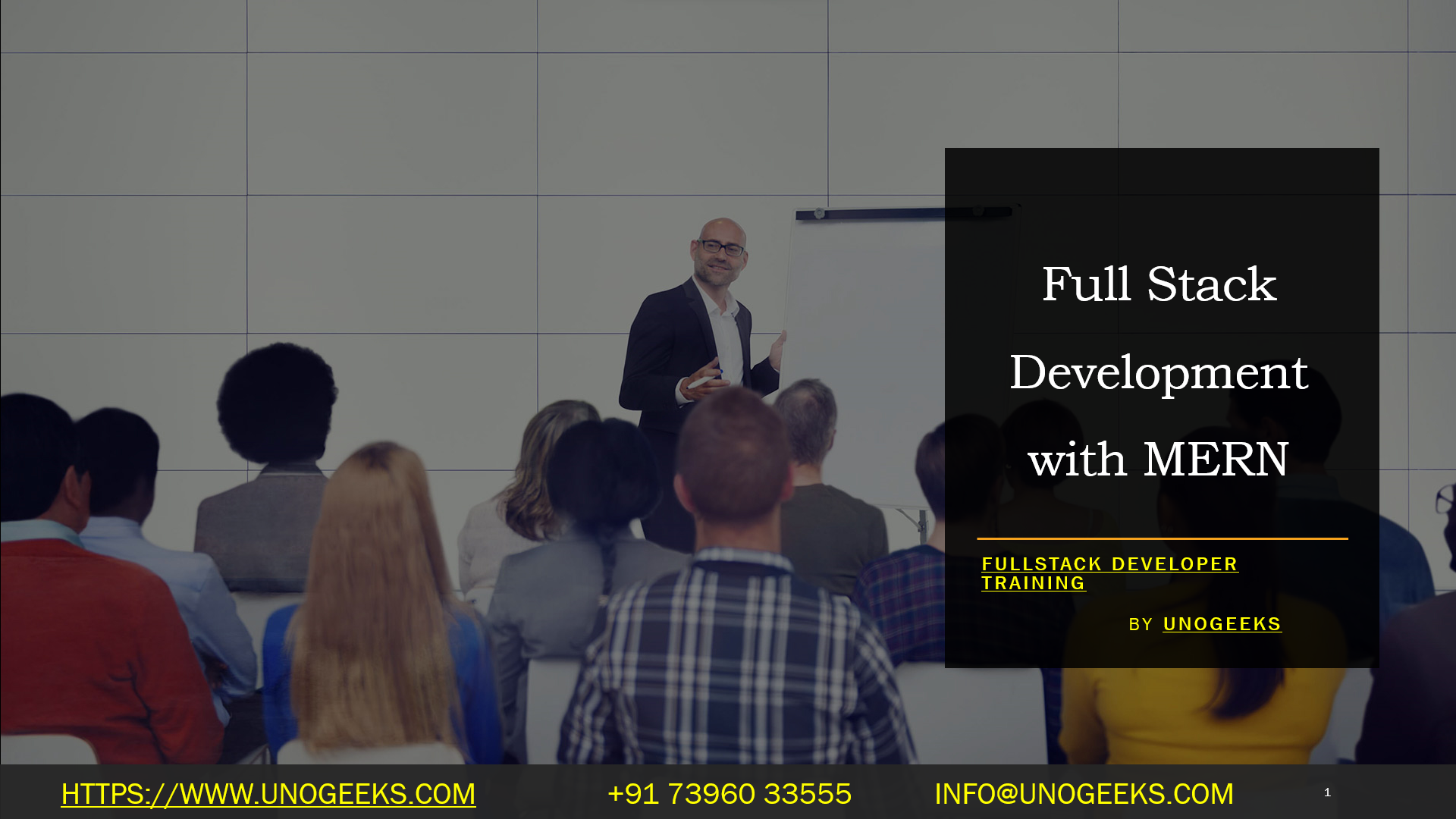Full Stack Development with MERN
Full Stack Development with MERN
Full Stack Development with the MERN stack involves building web applications using four main technologies: MongoDB, Express.js, React, and Node.js. This stack allows developers to create modern and highly interactive web applications with a consistent JavaScript-based development environment for both the front-end and back-end. Here’s an overview of how to get started with Full Stack Development using the MERN stack:
1. MongoDB (Database):
- Description: MongoDB is a NoSQL database that stores data in a flexible, JSON-like format called BSON (Binary JSON). It is well-suited for handling unstructured or semi-structured data.
- Usage: Use MongoDB to store and manage the application’s data, including user information, content, and more.
2. Express.js (Back-End Framework):
- Description: Express.js is a minimal and flexible Node.js web application framework that simplifies the development of robust and scalable back-end services.
- Usage: Create RESTful APIs and define routes to handle requests from the front-end. Implement server-side logic and communicate with the MongoDB database.
3. React (Front-End Library):
- Description: React is a JavaScript library for building user interfaces. It enables the creation of dynamic and reusable UI components.
- Usage: Develop the front-end of your application using React. Create interactive and responsive user interfaces with components that fetch data from the server via API requests.
4. Node.js (Server-Side Runtime):
- Description: Node.js is a JavaScript runtime that allows you to run JavaScript on the server-side. It is known for its event-driven, non-blocking I/O model.
- Usage: Use Node.js to run the back-end server of your application. It handles HTTP requests, routes them to the appropriate Express.js handlers, and interacts with the MongoDB database.
Steps to Develop a MERN Stack Application:
- Project Setup:
- Set up your development environment with the necessary tools, including Node.js and a code editor (e.g., Visual Studio Code).
- Back-End Development (Node.js and Express.js):
- Create the back-end server using Express.js.
- Define routes, handle HTTP requests, and interact with the MongoDB database using a MongoDB driver or an Object-Document Mapper (ODM) like Mongoose.
- Implement user authentication and authorization if needed.
- Set up error handling and middleware as required.
- Front-End Development (React):
- Create the front-end user interface using React.
- Build UI components for various parts of your application, such as forms, lists, and navigation.
- Use React Router for client-side routing.
- Fetch and display data from the server by making API requests.
- Integration (API Requests):
- Establish communication between the front-end and back-end by making HTTP requests from React components to Express.js routes.
- State Management (Optional):
- Implement state management using tools like React Context API, Redux, or Mobx to manage application state efficiently.
- Testing: Write unit tests and integration tests for both the front-end and back-end components.
- Deployment: Deploy your MERN stack application to a hosting platform or cloud service provider. Configure the server environment and set up databases as needed.
- Continuous Integration and Continuous Deployment (CI/CD): Set up CI/CD pipelines to automate testing and deployment processes.
- Monitoring and Maintenance: Implement monitoring and logging solutions to track application performance, detect errors, and ensure smooth operation. Regularly maintain and update your application as needed.
Developing with the MERN stack allows you to build feature-rich and scalable web applications with a consistent JavaScript environment throughout the development process. It’s a popular choice for modern web development due to its flexibility and performance.
Full Stack Developer Training Demo Day 1 Video:
Conclusion:
Unogeeks is the No.1 IT Training Institute for Full Stack Developer Training. Anyone Disagree? Please drop in a comment
You can check out our other latest blogs on Full Stack Developer Training here – Full Stack Developer Blogs
Please check out our Best In Class Full Stack Developer Training Details here – Full Stack Developer Training

———————————-
For Training inquiries:
Call/Whatsapp: +91 73960 33555
Mail us at: info@unogeeks.com
Our Website ➜ https://unogeeks.com
Follow us:
Instagram: https://www.instagram.com/unogeeks
Facebook:https://www.facebook.com/UnogeeksSoftwareTrainingInstitute
Twitter: https://twitter.com/unogeeks
